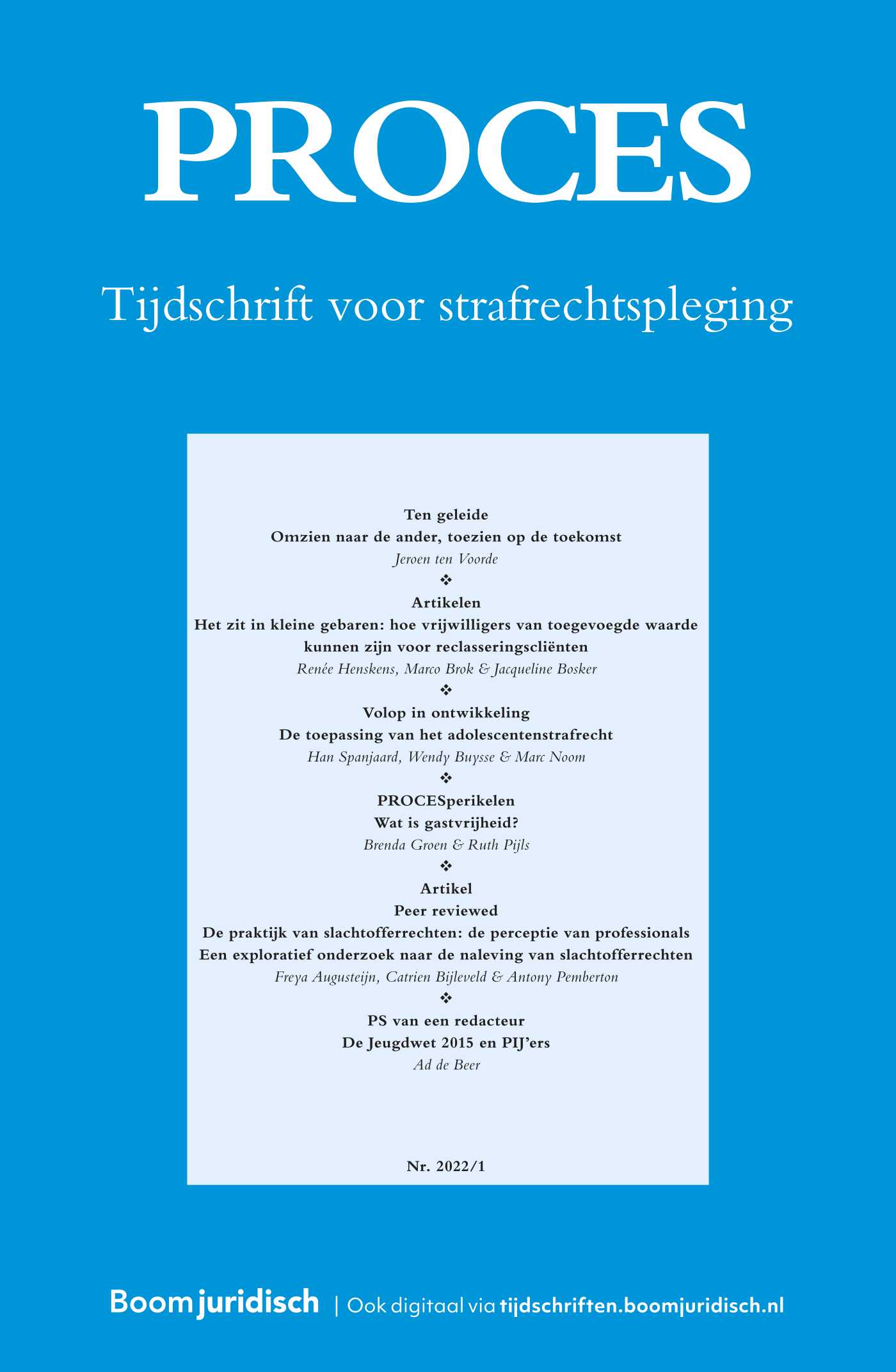|
A significant proportion of people involved in the criminal justice system face problematic debts. When determining the amount of a monetary fine, the court must consider a defendant’s ability to pay. However, the law provides minimal guidance on how to account for limited financial capacity. In this study, we examine how limited financial capacity is explicitly addressed in sentencing motivations when imposing a fine. The analysis reveals considerable variability in how the financial difficulties of defendants are referenced as a sentencing factor in judicial decisions. |


PROCES
Meer op het gebied van Criminologie en veiligheid
Over dit tijdschriftMeld u zich hier aan voor de attendering op dit tijdschrift zodat u direct een mail ontvangt als er een nieuw digitaal nummer is verschenen en u de artikelen online kunt lezen.
| Ten geleide |
Druk, druk, drukGaat AI ons werk verlichten? |
| Auteurs | Janine Janssen |
| Auteursinformatie |
| Artikel |
|
| Trefwoorden | draagkracht, geldboetes, strafmotivering, draagkrachtbeginsel |
| Auteurs | Rosa Koenraadt, Kees Dam en Pauline Schuyt |
| SamenvattingAuteursinformatie |
| Artikel |
Online en offline bedreiging en intimidatie bij jongerenOvereenkomsten en verschillen in omvang, impact en ondersteuningsbehoefte |
| Trefwoorden | online en offline bedreiging, intimidatie, jongeren |
| Auteurs | Lisa Rosielle, Annemieke Wolthuis, Suzanne Bouma e.a. |
| SamenvattingAuteursinformatie |
|
Around 1 in 5 youngsters in the Netherlands experiences online violence. They often become victims of online threats and intimidation. This can have severe emotional and psychological consequences. Girls and lgbtq+ youth are more frequently affected by online violence and suffer greater impact than boys and heterosexual peers. Online and offline violence often overlap, complicating victim experiences. Despite increasing attention and support services, many young victims struggle to find help. It is recommended that police and support organizations address the overlap between online and offline violence. Next to that specialized training regarding the influence of gender norms and heteronormativity is needed. |
| PROCESperikelen |
Beeldvorming in kinderboekenHet vroege begin van preventie van geweld tegen leden van de LHBTQIA+-gemeenschap |
| Auteurs | Jesper Bongers |
| Auteursinformatie |
| Artikel |
Wat zijn de verschillen tussen narcisme en psychopathie?Het belang van gedegen differentiaaldiagnostiek voor een bewustere aanpak bij intiem partnergeweld |
| Trefwoorden | cluster B personality disorders, narcissism, psychopathy, intimate partner violence (IPV), intervention quality |
| Auteurs | Désiré Palmen en Janine Janssen |
| SamenvattingAuteursinformatie |
|
In this article we will discuss that certain psychological disorders may be strenuous to separate from other specific psychopathologies. In this article we will focus on the differential diagnosis between narcissism and psychopathy in particular. Both psychopathologies show correlations with aggression and violence in intimate partner relationships. One important part of the differential process is to master the discriminating symptoms. We will elaborate on these discriminating factors between narcissism and psychopathy. We also propose that it is important to invest in educating health care professionals who work on cases of Intimate Partner Violence (IPV) about the possible role of narcissism or psychopathy in such cases, the separate disorders but also about the differences between these two disorders so they can elevate and adjust their practise of care, intervention and prevention. |
| PS van een redacteur |
Dystopische doelmatigheidReflecties op een landelijk kwaliteitskader |
| Auteurs | Jaap van der Spek |
| Auteursinformatie |
| Call for papers |
Call for papers |

